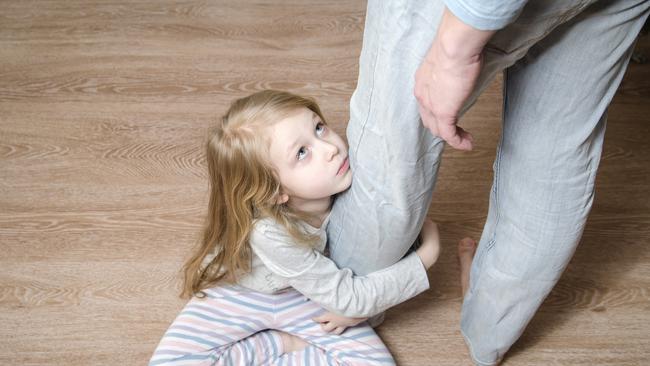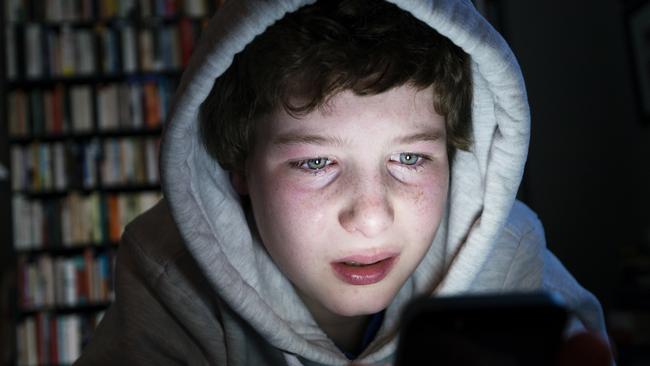Judith Locke: How to spot if children are struggling with mental health
Things are slowly going back to normal, so it’s natural that parents expect their children’s moods will improve. But now more than ever, we have to keep an eye on them, writes psychologist Judith Locke.
Rendezview
Don't miss out on the headlines from Rendezview. Followed categories will be added to My News.
So, things are slowly going back to normal – a different normal – but one less isolated.
You’d think moods would be improving, but now, more than ever, we have to keep an eye on
children, and even adults.
I have spoken before about the fact that, for some people, isolation might have been a
blessing in disguise. Those who found their previous life somewhat challenging, might have
enjoyed the chance to stay a little more in their four walls. These people may be dismayed
at the thought of a resumption of their former life, they may be thinking of ways out of
moving forward, including self-harm or suicide.
So, what should parents be looking out for? Here’s some things to be concerned about and
what to do.
A changed social group
Children draw great comfort from their peer group, as they often feel an important sense of
belonging and support from their buddies. Losing contact with friends, changing friendship
groups, or a friendship fight, might be a huge impact on them that causes an overwhelming
reaction.
Their behaviour has changed
You can expect your child’s personality to alter slightly as they move from childhood to
adolescence and start to become more concerned about peers’ opinions than their parents’.
The recent changes to day-to-day life may have also prompted some different reactions in
your child. But these changes shouldn’t be too sudden or extreme. For example, if your child
suddenly becomes incredibly withdrawn, particularly angry, or doesn’t want to do activities
they enjoyed pre-COVID, then it’s a good idea to check in with them. In a quiet moment, ask
how they’re faring – ‘How are you going? Are things OK?’

If they confide in you
Your child bringing up their concerns provides a valuable opportunity. It is essential that you
listen to their worries patiently and give them an appropriate amount of time to talk. Don’t
dismiss their extreme statements, such as ‘I will never get another friend’ or ‘everything is
hopeless’. While you may think that you can minimise their feelings by telling them not to
be silly or that they’re overreacting, it can make them feel unheard and less likely to bring
up their feelings with anyone in the future.
A better way to respond is to ask more questions about the situation they find themselves
in. Try not to get too emotional in this conversation, as they are likely to stop speaking if you
become too upset. You want to present yourself as capable to be confided in.
If you are worried about the strength of their feelings, it might be wise to ask them how bad
it has ever got for them, and if they’ve ever thought of doing something serious, such as
suicide. That’s an understandably uncomfortable question for many; however, research
shows that it doesn’t plant the idea in their head, but allows them a sense of relief to talk
about it and feel cared for.
If they do say that they’ve thought of this, then let them know you have heard their concern
and assure them that you are going to work together, to sort this out. Express confidence to
them that the situation can be turned around with the right support and start planning that
support immediately with them. Now is the time for reassurance and action – there are
some suggestions below.

Praise them for the strength they have shown in letting you know and reassure them that
they’ve done the right thing. Continue to keep an eye on them, as you get the necessary
help
These are uncomfortable topics, but as the person who loves your child the most, you have
to be strong in initiating them. It might be one of the most important conversations you
ever have.
Takeaway for parents
There are many places to get help.
Kids Helpline is a fantastic first point of contact for a child who is struggling. 1800 55
1800.
Your child’s school counsellor can see your child/family or recommend a local
psychologist with expertise.
To be strong for your child, get the support you need via your own psychological
assistance to help with your overwhelming feelings. Speak to your GP to get a
referral to a psychologist.
If you, or a loved one, are at risk of current harm you can present to the emergency
department of the nearest hospital to get immediate help.
If this column has brought up any issues for you, then you can get immediate
support at Beyond Blue 1300 22 4636


